
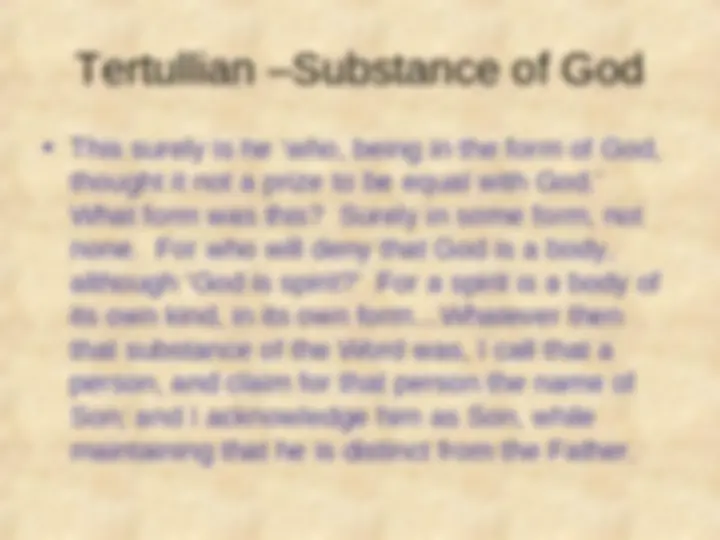
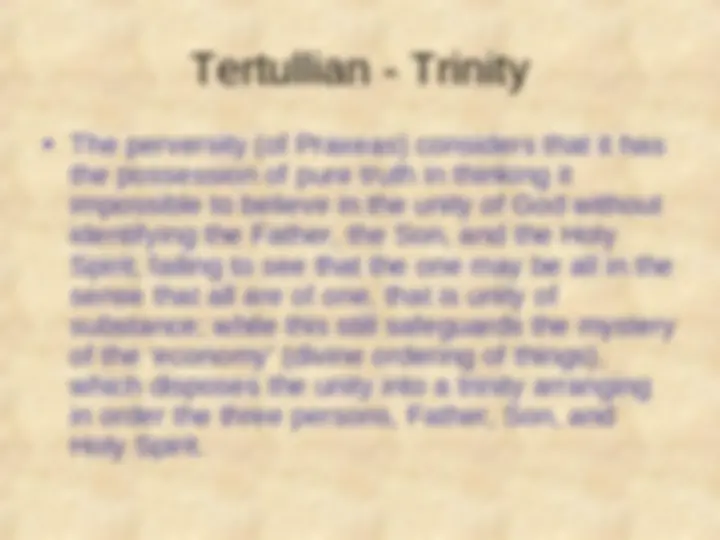
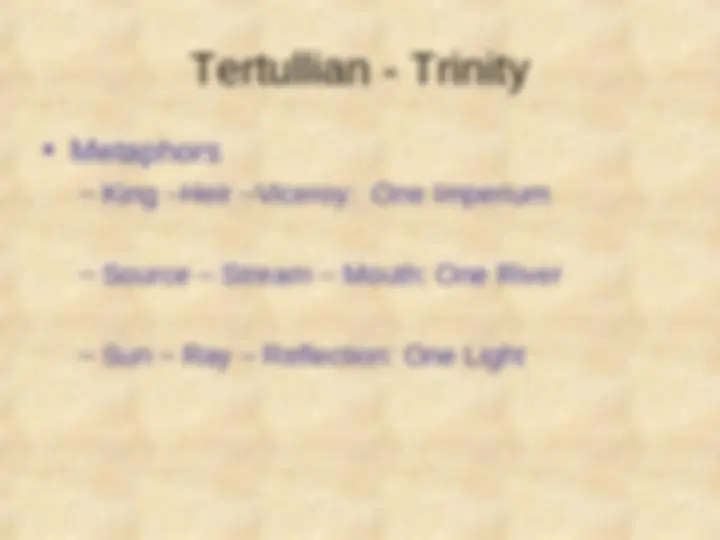
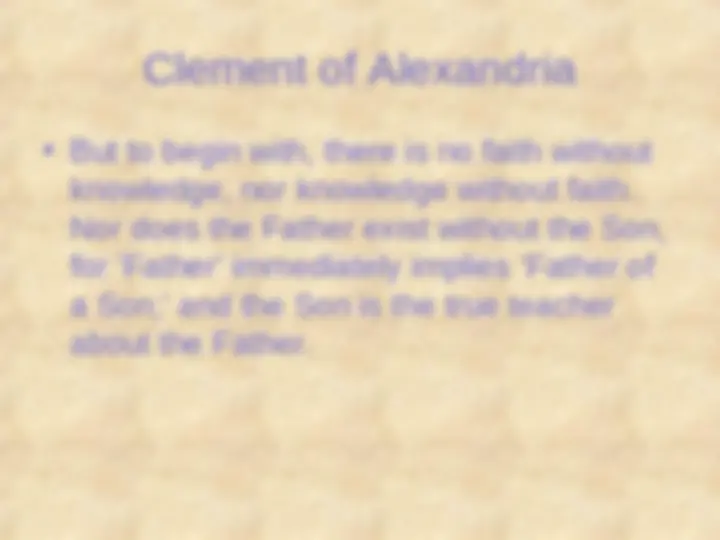
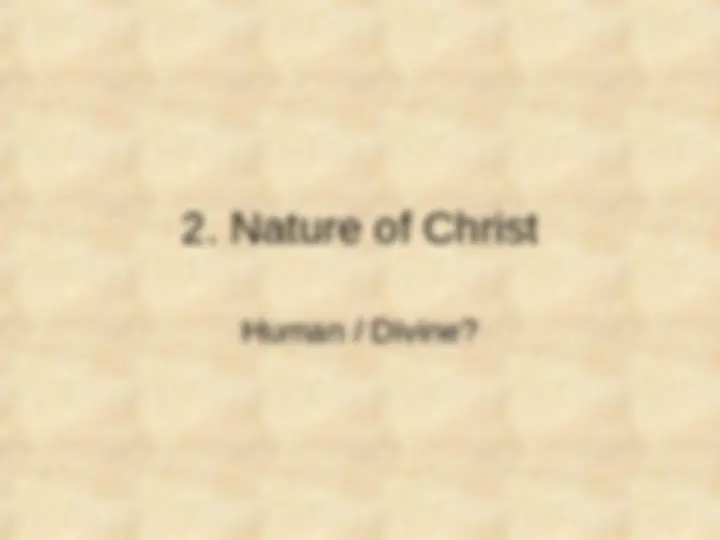
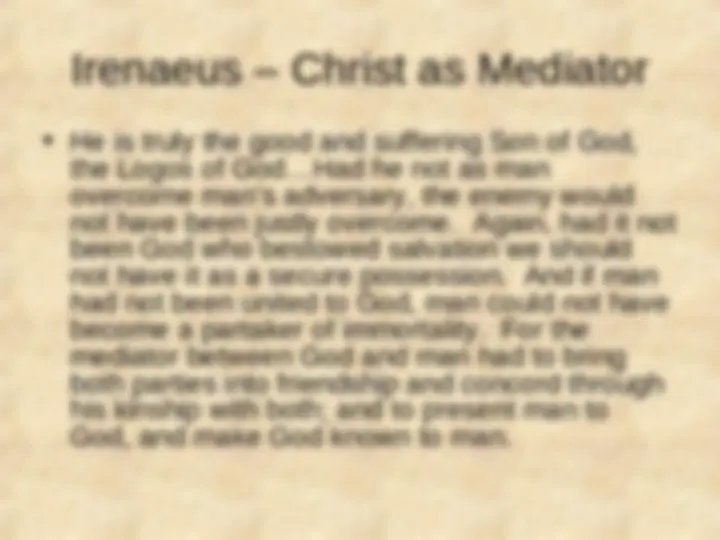
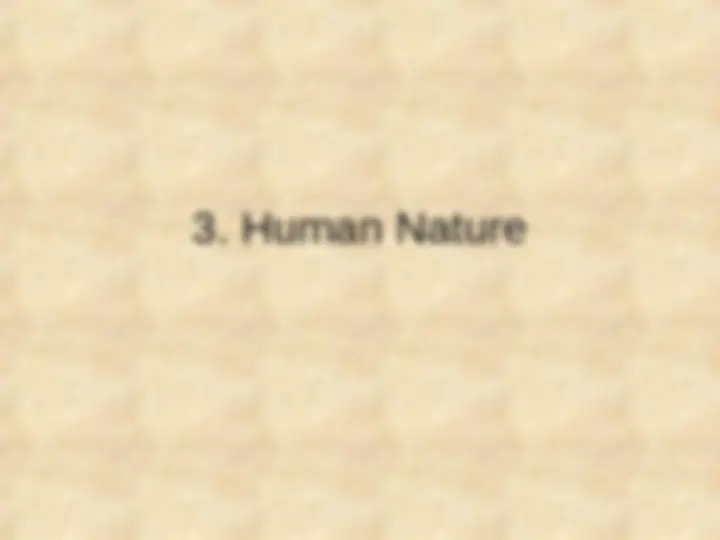
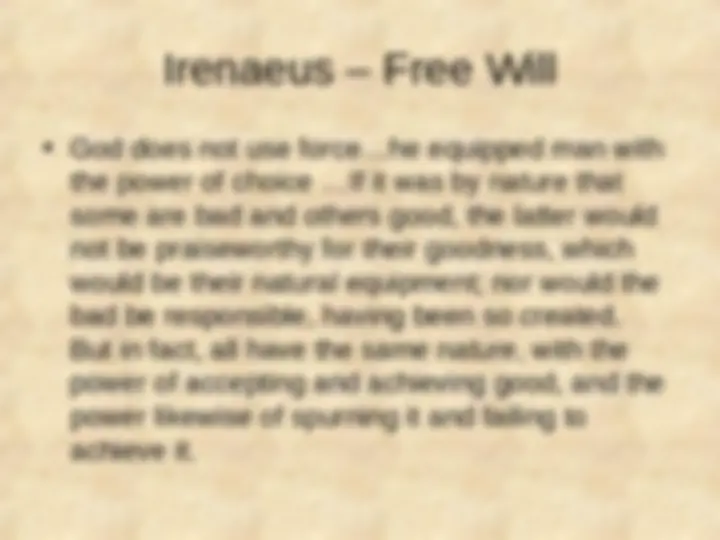
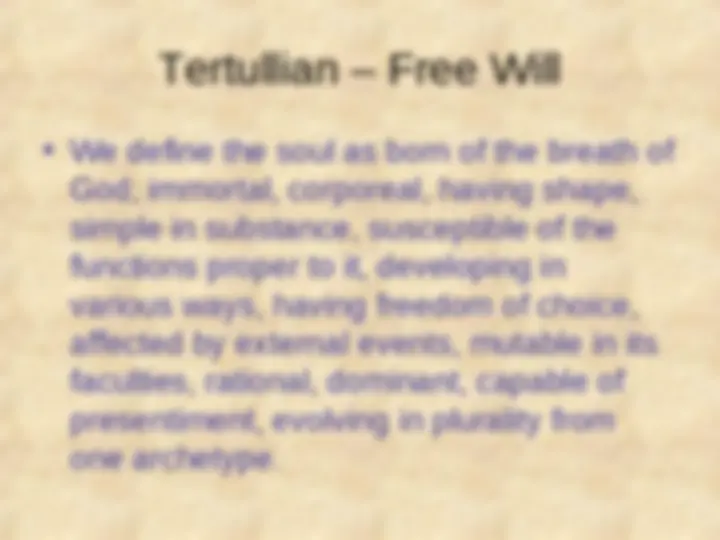
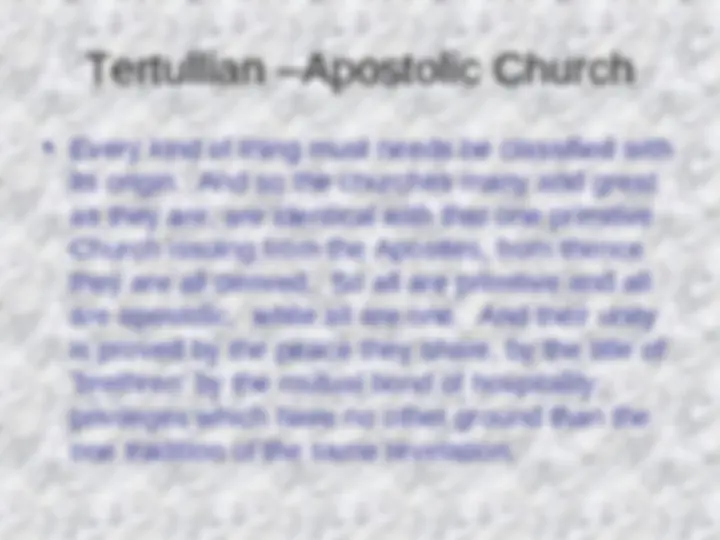
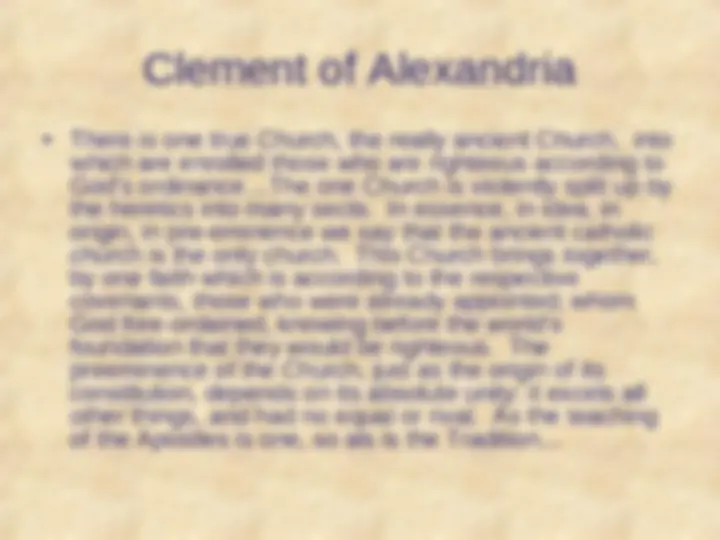
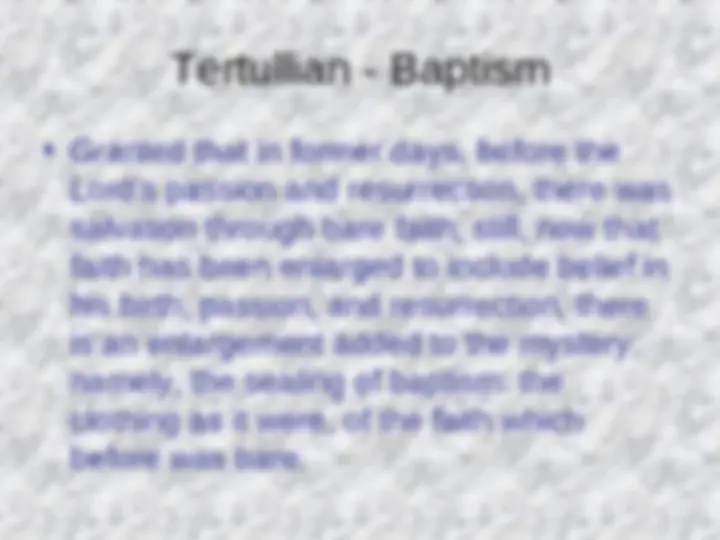
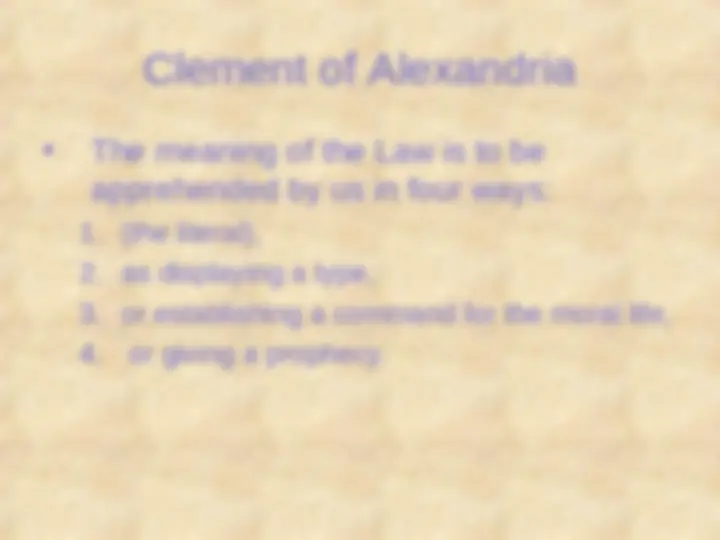
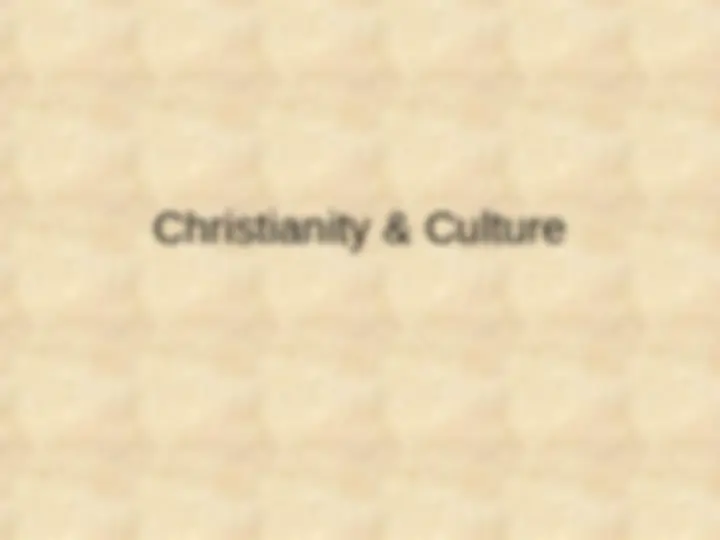
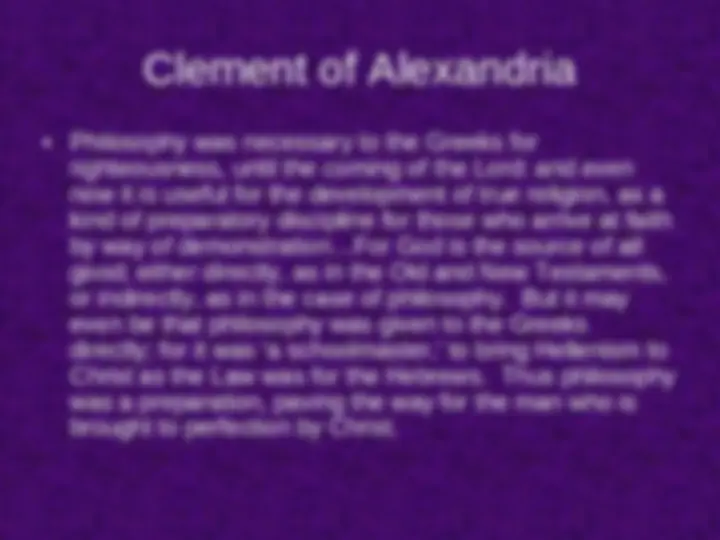
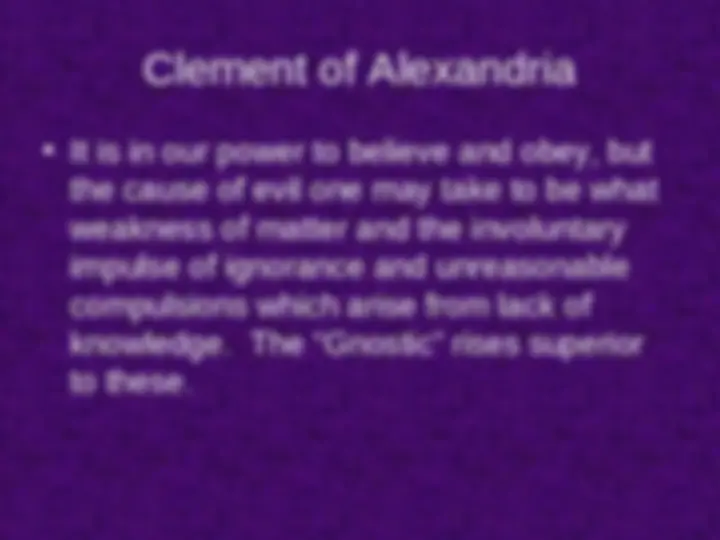
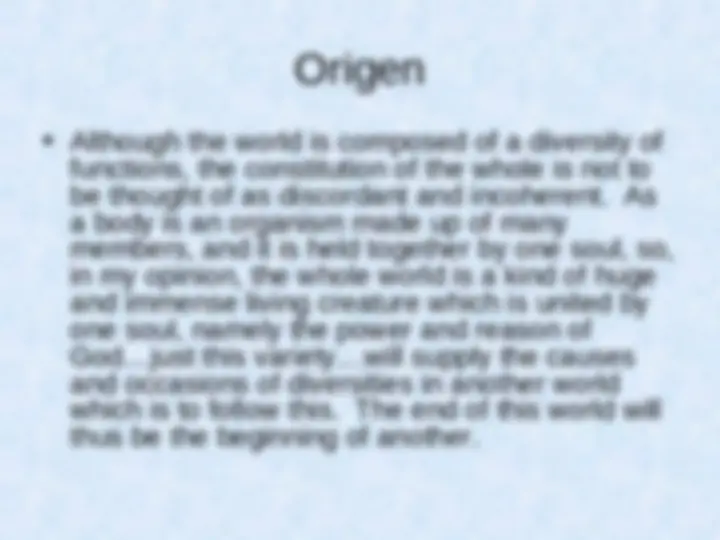
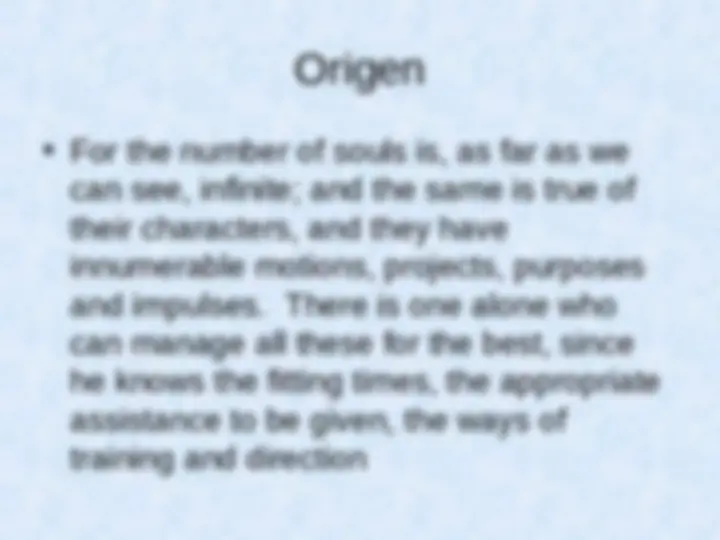
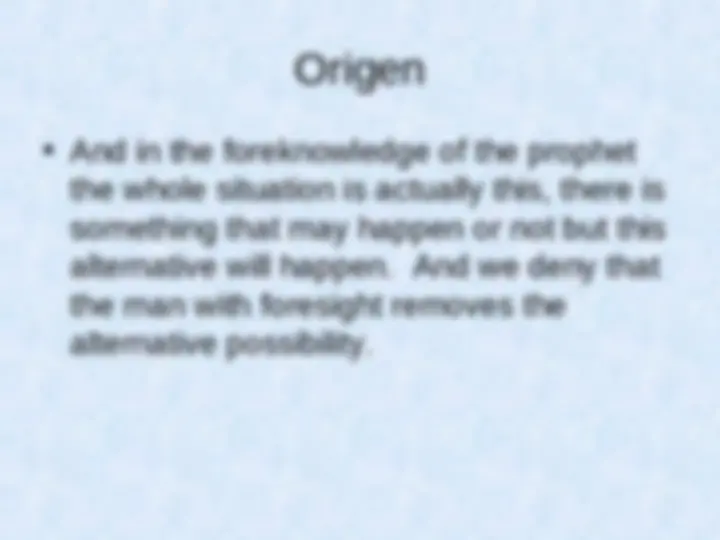
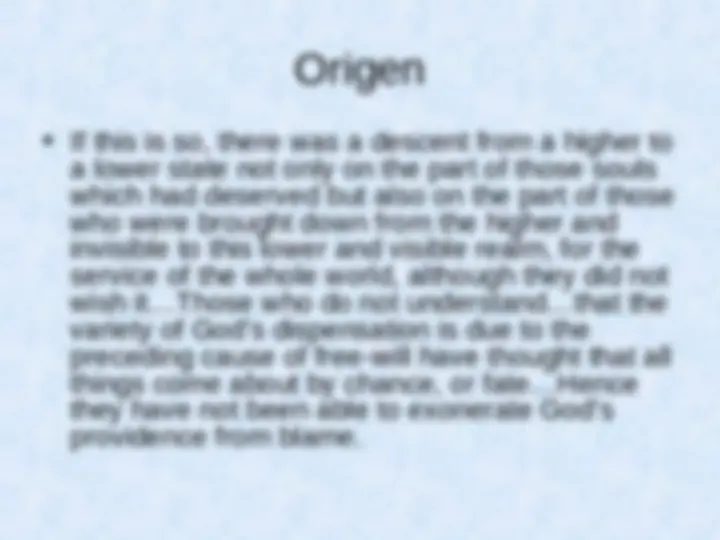

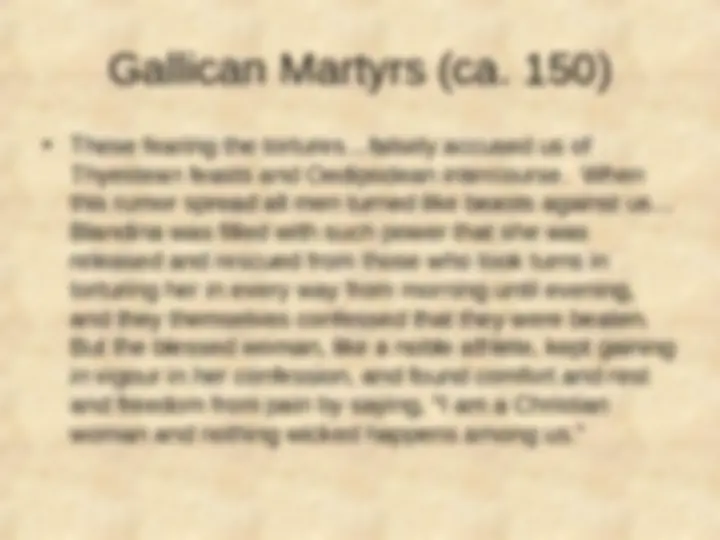
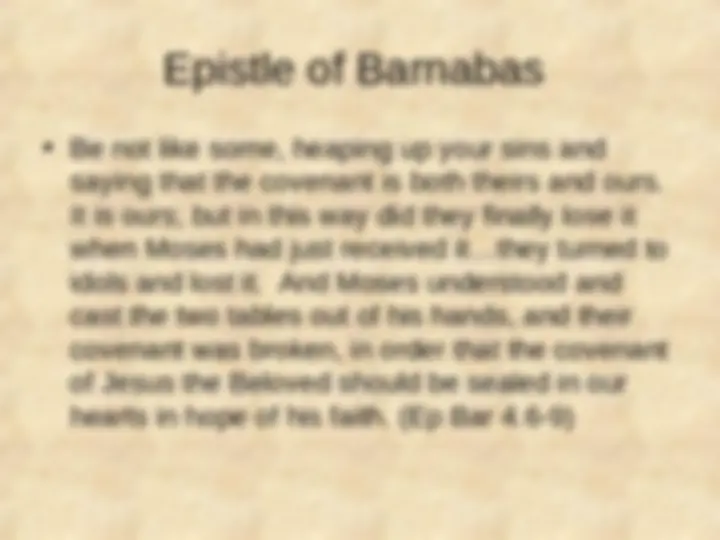
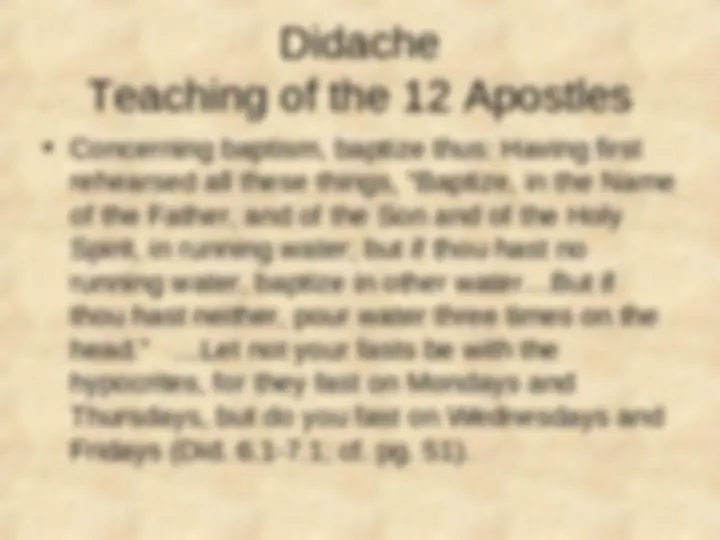
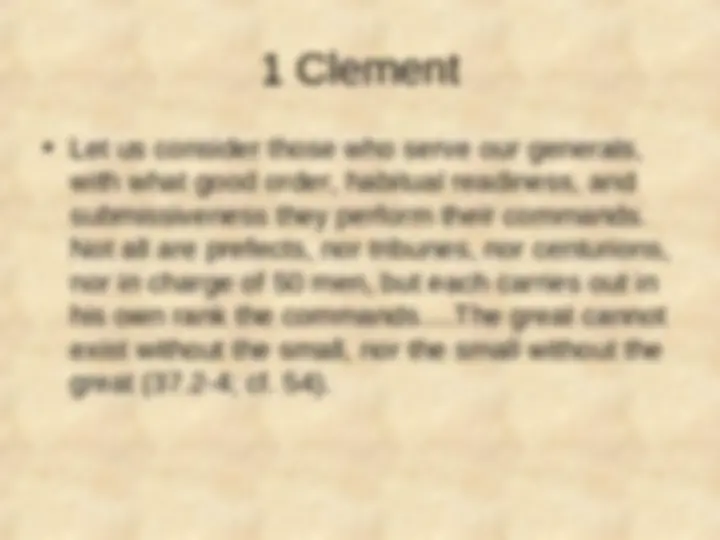
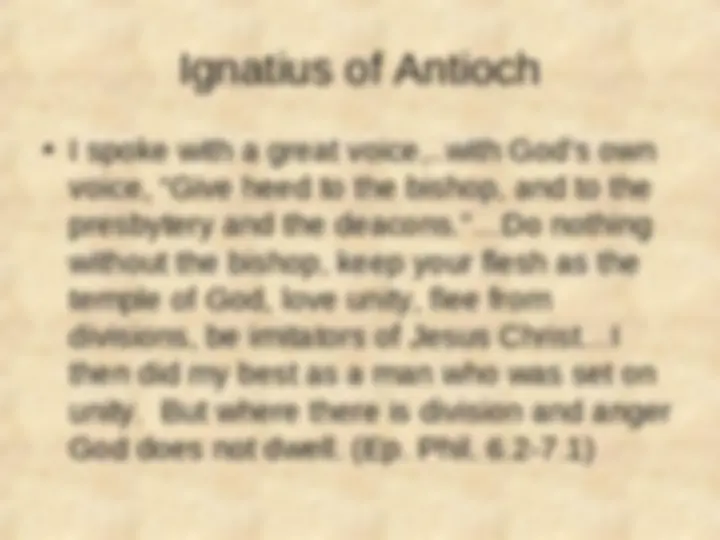



Study with the several resources on Docsity

Earn points by helping other students or get them with a premium plan


Prepare for your exams
Study with the several resources on Docsity

Earn points to download
Earn points by helping other students or get them with a premium plan
Community
Ask the community for help and clear up your study doubts
Discover the best universities in your country according to Docsity users
Free resources
Download our free guides on studying techniques, anxiety management strategies, and thesis advice from Docsity tutors
This document delves into early christian theological debates on the nature of god, specifically the concept of the trinity, as discussed by tertullian, clement of alexandria, and irenaeus. Additionally, it covers human nature, free will, and the role of philosophy in christianity. The text also touches upon church organization, succession, and the significance of baptism.
Typology: Study notes
1 / 35

This page cannot be seen from the preview
Don't miss anything!




























Sample Texts On Central Issues
Trinity